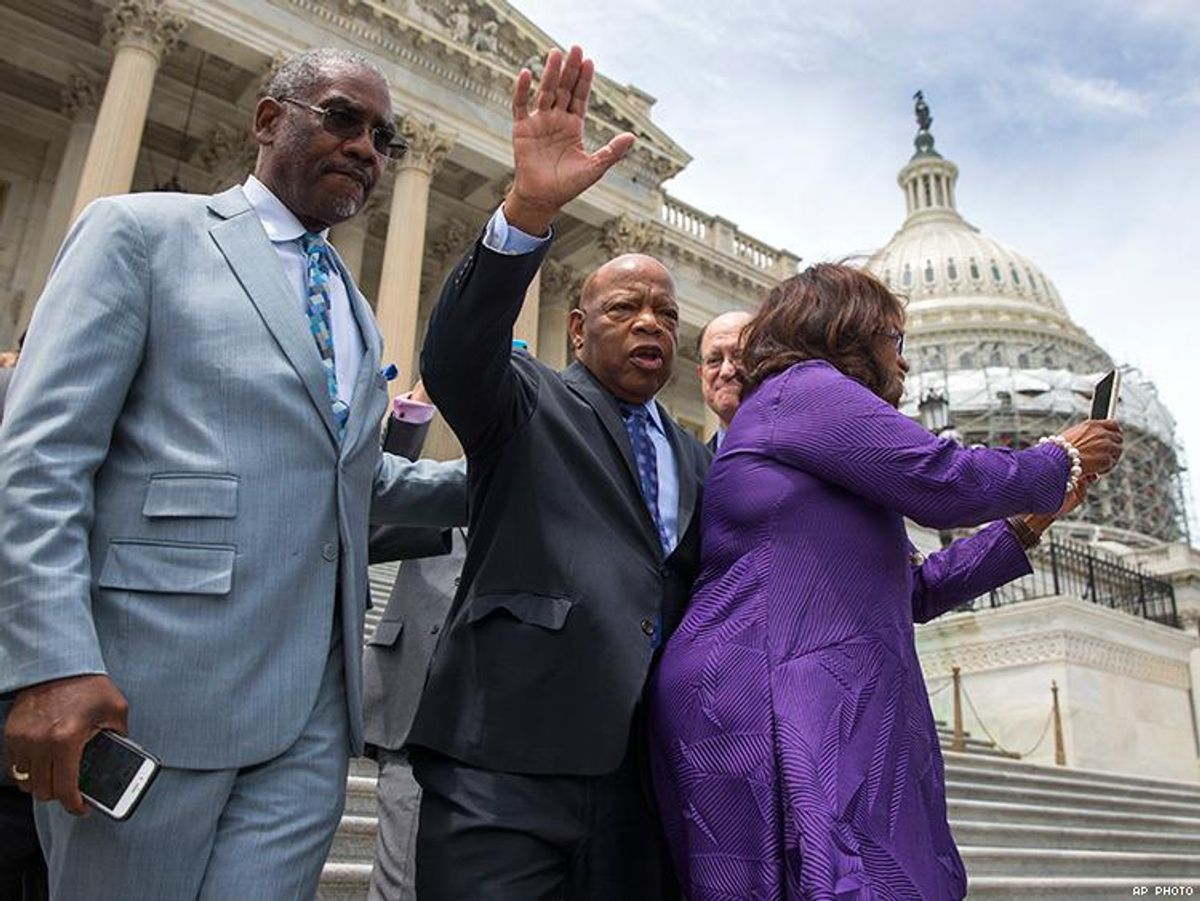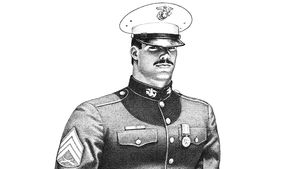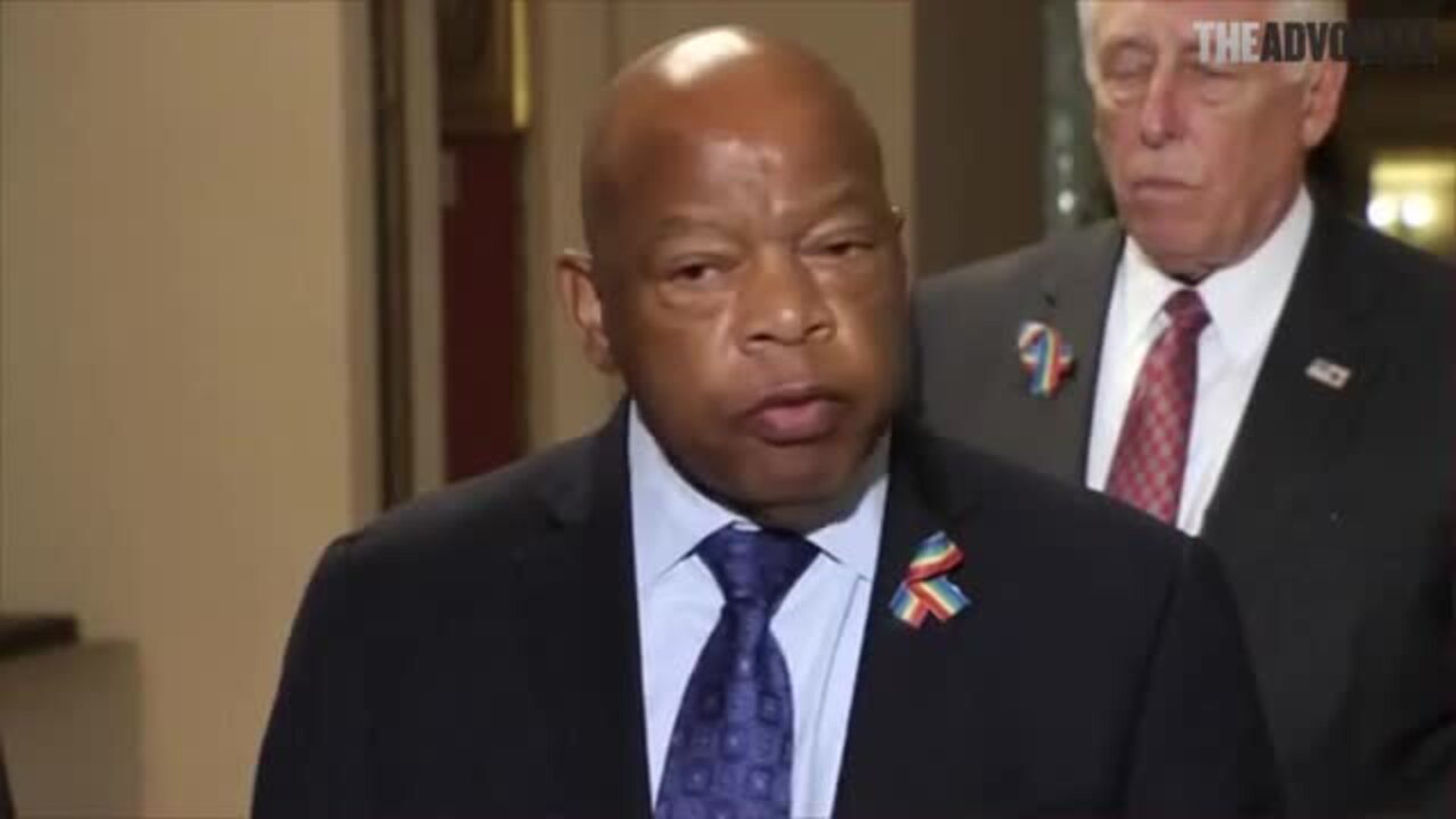With the sit-in ending in the U.S. House, whether gun control laws get passed in the future seemingly depends on whether Democrats can connect the disparate groups that have been targeted, including LGBT people.
Democrats ended their sit-in on the House floor Thursday afternoon, walked down the steps of the Capitol to a crowd of supporters, and Rep. John Lewis gave an inspiring call for coming together.
"All of you working together," he told them, "we can turn our nation around and create a beloved community where no one is left out or left behind because of the color of their skin and it doesn't matter whether we are black or white, Latino, Asian-American, or Native American, whether we are straight or gay, we are one people, we are one family, we all live in the same house, not just in the American house, but the world house, and we must look out for each other."
Lewis being the face of this sit-in has tinged the entire debate about gun control in the language of the civil rights movement, in which he played a role. And Democrats are trying to draw common cause between the victims of a hate crime in Charleston, S.C. -- where a man gunned down people at an African-American church last year in the hope of starting a race war -- and those at the shooting in Orlando.
What Democrats want is a movement, one that includes parents left behind in the Newtown massacre or other school shootings, and all the loved ones affected by the daily gun deaths in America.
The 25-hour sit-in ended along with the House heading into recess (though there are reports some haven't yet left), and Lewis threatened to bring back the sit-in tactic in July when the House reconvenes.
"The fight is not over," he shouted to supporters. "This is just one step, but when we come back here on July the 5th, we are going to continue to push, to pull, to stand up, and if necessary, to sit down."
Lewis and a cadre of members of Congress are calling for a vote on the "no fly, no buy" proposal that would bar anyone on the terrorist watch list from purchasing a gun without the FBI approving. When Sen. Chris Murphy of Connecticut led a filibuster in the Senate, he demanded a vote on that provision even while acknowledging it's the smallest step forward.
Rep. James Clyburn underscored that although nothing can pass without a movement of people -- one that Lewis says should cut across our usual dividing lines -- the sit-in is about gun control legislation. We must pass laws, he said, "that would allow faith leaders to have Bible study without any kind of anxieties," invoking Charleston. The laws "will allow people irrespective of their orientation to enjoy themselves, their celebration, without having to worry about whether someone in that building is demented, with a gun, and can bring harm to them. That's what this is all about, having commonsense gun laws, disarming hate, and restoring to our great country the kind of sanity that will make us all great."



















































































